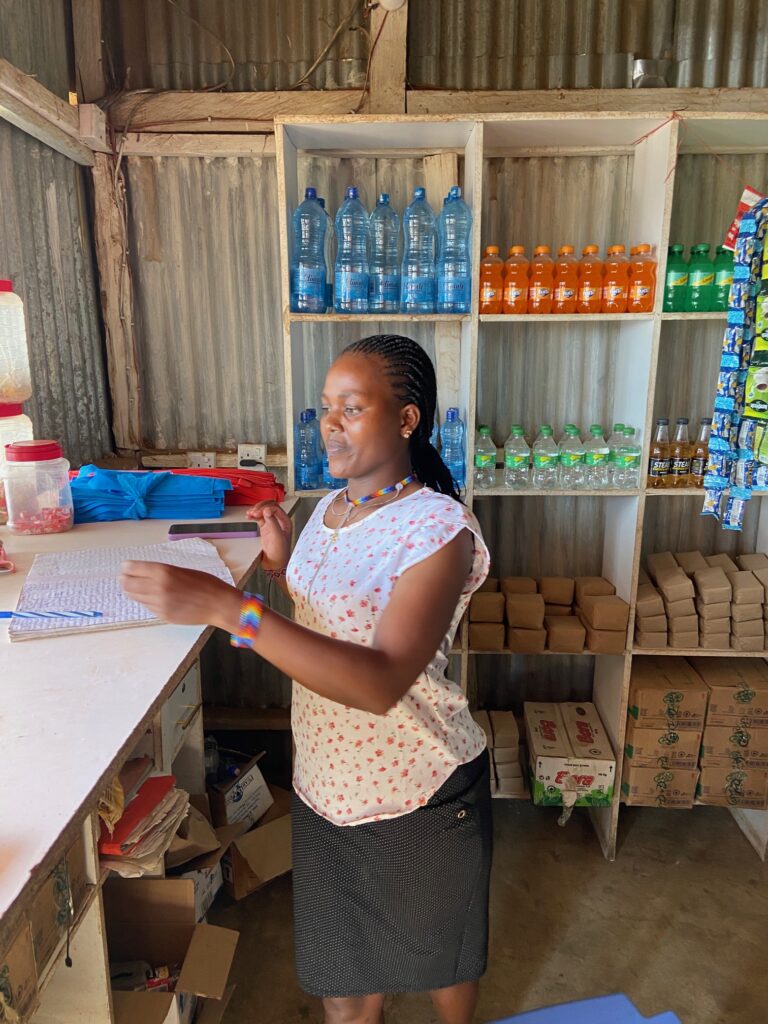By Nick Markham & Wyclife Aketch
A glimpse into rural Kenya
Sixty kilometers down a dusty dirt road, far from the nearest tarmacked road and bustling town center, lies a remote village in Narok County, Kenya—a community of 2,000 people where access to electricity is scarce and everyday necessities are a challenge to secure.
Here, Neelai, a 21-year-old Maasai woman, starts her day. Previously, her source of income was working as a waitress for a local hotel, where she earned $46 per month. With formal education up to high school certificate level, Neelai has limited access to employment opportunities, and her options for a better livelihood are slim. Despite the digital revolution transforming cities like Nairobi, her village still feels worlds apart, with most consumers earning between $2 -$3 per day, untouched by the innovation shaping the lives of others just a few kilometers away.

Neelai’s experience is not unique. 60% of the population in sub-Saharan Africa live in rural areas. Many of them live near these rural trading centers, which serve as economic lifelines for surrounding communities and provide the only access to basic commodities. Due to high service costs, these rural centers often face higher prices for basic commodities, hindering and suppressing local economic development in these areas.
At Jobtech Alliance, we believe jobtech platforms ought to serve all Africans, including those in underserved rural areas. Few platforms operate at this level, but ventures like Mwingi demonstrate the potential to drive much-needed true economic inclusion to these rural areas.
Why we are excited to partner with Mwingi
Founded in 2019, Mwingi aims to establish one of Kenya’s largest rural networks of connected shops (Dukas) through a franchise-based model known as “Mwingi Shops.”
Aware of the challenges that have plagued other platforms trying to serve customers in rural areas (such as Copia), Mwingi has embraced a cost-efficient operational model. With 99% local staff, the company has adopted a lean model keeping operational costs low while leveraging a franchise approach that ensures operational control and efficiency of its “dukas.” By aggregating demand across entire villages, Mwingi supplies over 2,500 independent retailers, contributing to the low cost of service for their dukas and delivering high-quality, affordable commodities to these underserved areas in a highly cost-effective manner.
To serve consumers at the true base of the pyramid in rural areas and alleviate the poverty penalty for retail goods, jobtech platforms will not be successful if they pursue a traditional B2B restocking model. Mwingi takes a unique approach by combining retail franchising with an asset-light wholesale component, effectively enhancing unit economics. This dual model strengthens margins, ensuring the profitability of the business model while creating a scalable, profitable model for rural commerce. Here’s how:
- Mwingi owns its franchise shops, ensuring consistent quality and customer experience while building trust within communities.: Fully owned and managed Mwingi dukas benefit from Mwingi’s tech-driven supply chain, delivering high-quality, competitively priced products, fostering loyalty and trust among local customers.
- Demand aggregation between Mwingi dukas and independent retailers for cost efficiency: Mwingi supplies both its franchise shops and independent retailers within communities, aggregating demand to achieve economies of scale. This reduces the logistic cost of distribution and ensures a steady supply to underserved markets.
- Increased purchasing power: By combining wholesale and retail demand, Mwingi negotiates better buying prices with suppliers, further lowering costs for its franchisees and wholesale customers.
Mwingi stands out in the rural retail space by combining operational control, empowerment, and innovative technology to address the unique challenges of serving this difficult to serve market. Its franchise model prioritizes employing women (80%), providing a fixed base income with flexible commissions that ensure financial stability and predictable earnings. By tailoring its operations for rural commerce, Mwingi focuses on small-basket purchases, a curated SKU range of essential items, and breaking bulk on core commodities to lower costs and enhance affordability. Mwingi’s proprietary POS system and seamless logistics infrastructure ensure efficient inventory management, optimized routing, and reliable stock availability, reducing costs while fostering customer loyalty. With rural retail data from over 3 million customers, Mwingi leverages data-driven insights to refine operations and meet demand effectively.
In their short span, Mwingi has created more than 165 franchise jobs (over 80% women) and provides supply chain services to over 1,500 independent retailers. They have an objective to create over 100 additional franchise jobs in 2025 and further contribute to significant indirect jobs created through third parties such as logistic partners.
This enables Mwingi to continue to transform lives—like that of Neelai, whose income increased nearly fourfold (over $186/month). Over 80% of those participating in Mwingi’s franchise model are women, showcasing its unique role in fostering widespread, gender-focused meaningful impact in rural communities across Kenya.
Unlocking the full potential of Mwingi’s model
At the Jobtech Alliance, we seek to work with platforms that not only address current challenges but also catalyse sector-wide transformation. Mwingi exemplifies this vision with its impactful focus on empowering women in rural areas.
We envision a future where interconnected rural dukas aggregate demand, enabling fair pricing of basic commodities and tackling the poverty penalty that has long burdened underserved populations. We hope that these dukas, acting as innovation hubs, can drive down prices of basic commodities, creating economically viable retail models, and introducing new additional service offerings for the local communities, leveraging the existing infrastructure and boosting the profitability of these dukas at a unit level.
We believe in solutions that put people first and improve livelihoods, and Mwingi embodies exactly that. Learn more about Mwingi Africa and their transformative journey.

0 Comments